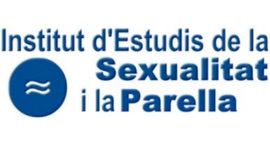Mediacio-1 Mediation in separations and divorces is a process by means of which a couple that has decided to separate works together with a professional expert in mediation, in order to reach a satisfactory agreement for the two members of the couple. In the case of the Institute, the professionals are psychologists, with extensive experience in working with couples in crisis, to whom, when necessary, an expert lawyer in matrimonial law is incorporated.
Mediation is a process different from that of a couple therapy, because mediation is not a therapeutic process, but just begins when it is assumed that the relationship between partners reaches its end and, therefore, has as its main goal to achieve the best possible separation, legally and emotionally.
Advantages of mediation
Mediation is a non-adversarial system. The legal system is based on the consideration that the participants are adversaries. In many cases, this consideration is not true, since there is a relevant number of couples that, with an effective aid system, can reach agreements acceptable to both parties with relative ease.
Mediation is cheaper. The resolution of a conflict that requires a judicial process is more economical when the two members of the couple request the services of a single professional to whom they present a set of agreements already elaborated and discussed.
Mediation respects privacy better. Couple disagreements can be resolved better when the names of professionals involved in the conflict are limited. Mediation facilitates the maintenance of this privacy, since the team of mediators is at the service of the couple.
Mediation is faster. The achievement of separation or divorce agreement takes less time through a mediation process than when the resolution of the conflict is resolved through the legal system following the usual steps and methods.
The mediation supposes a less psychological and emotional wear. Psychological support is important in a situation of high emotional conflict, since it favors the adequate channeling of the different negative feelings that a separation brings with it, decreasing the personal wear and tear of each member of the couple.
Mediation benefits the children. In a high percentage of conflicting separations, the children are the most affected, insofar as they are impotent bystanders of family disintegration, a situation that affects their normal development in different ways. In any case, the effects are less when the separation occurs in an orderly manner than when it is highly conflictive.
Process characteristics
The mediation process consists of a series of sessions (usually between 3 and 6), of approximately one and a half hours, in which the two members of the couple participate. In these sessions the psychologist, the lawyer or both may be present at the same time, depending on the moment of the process and the progress made.
In this process, the two members of the couple are helped by the professionals to negotiate on the different solutions necessary to reach an agreement acceptable to both parties. The process, therefore, is not only the clarification of the legal principles applicable to each case, but also to guide the couple on how to deal with their new situation on a personal level and how to continue acting as parents. In this sense, mediation is not a process centered on the past, but in the future, since it tries to define what the relationship of the different members of the family will be like from the moment of signing the agreement.

